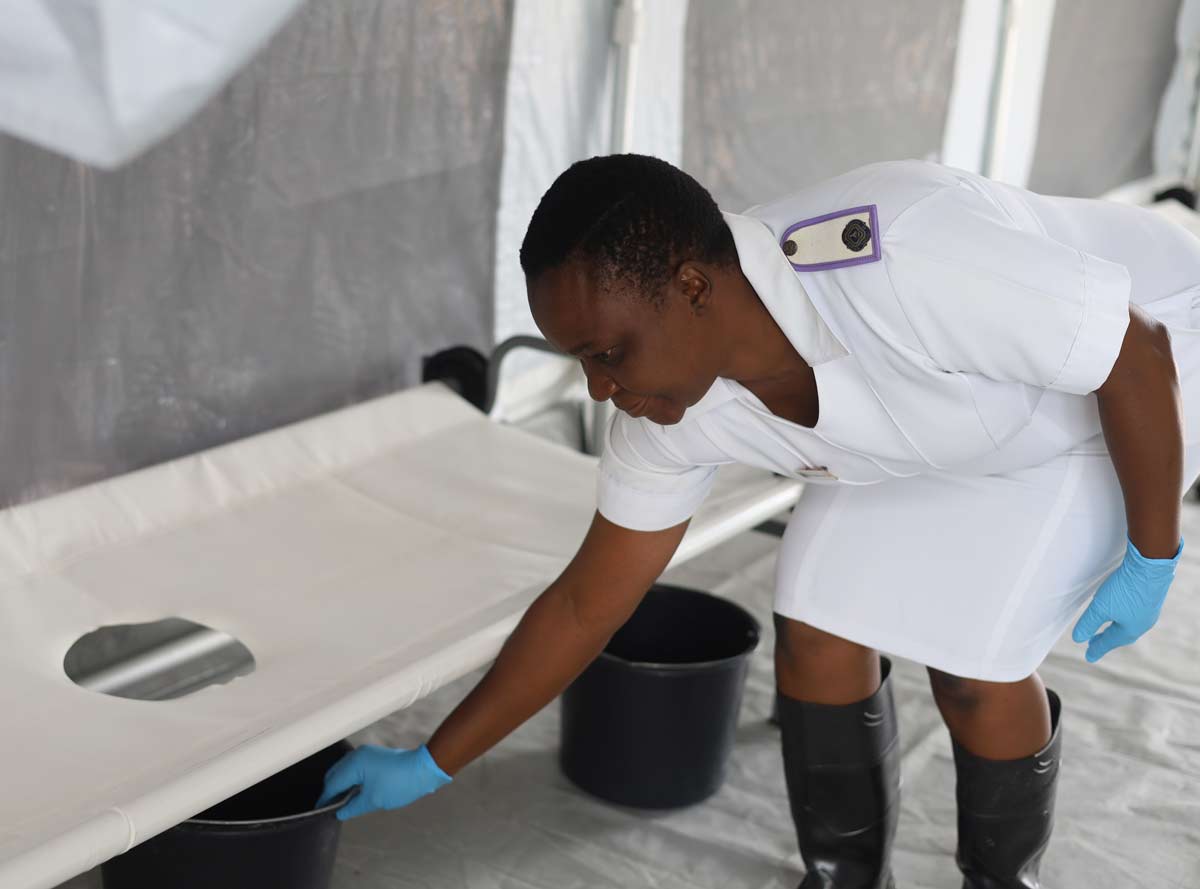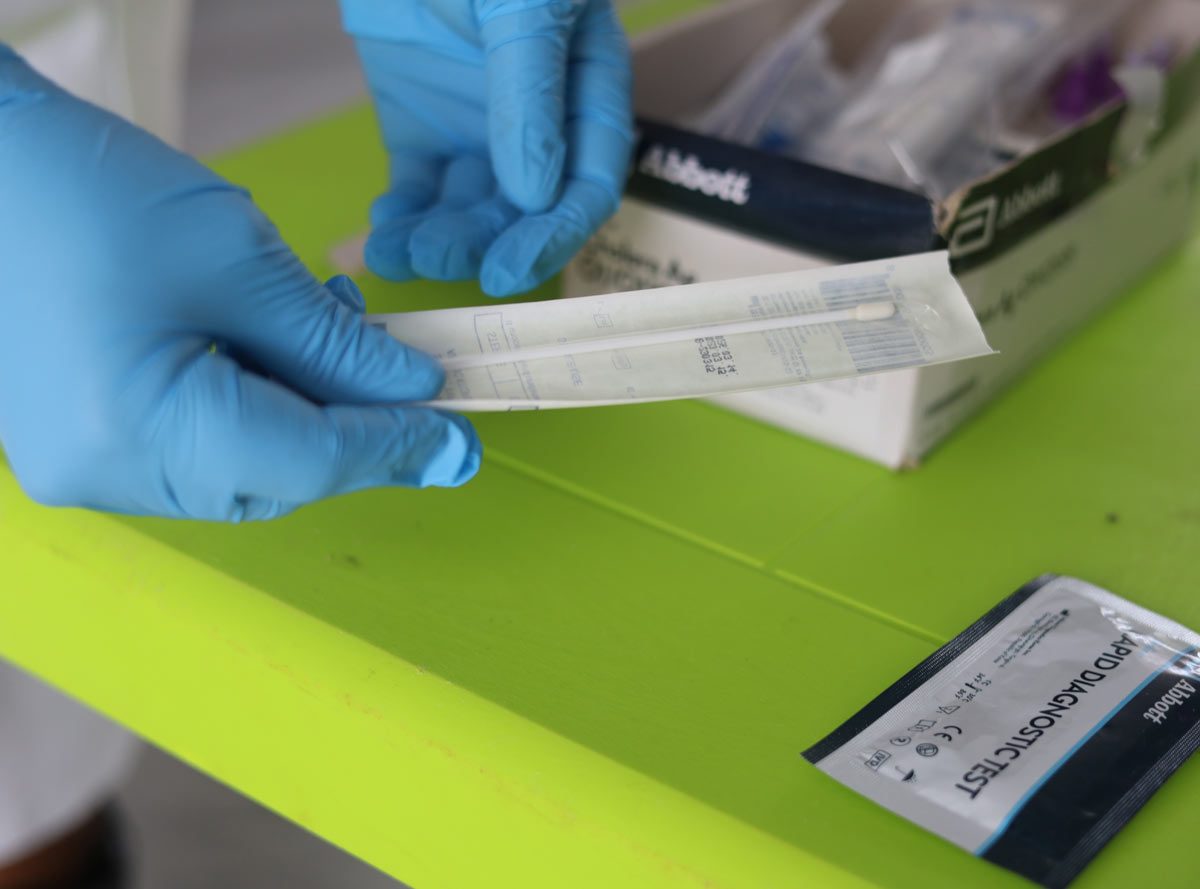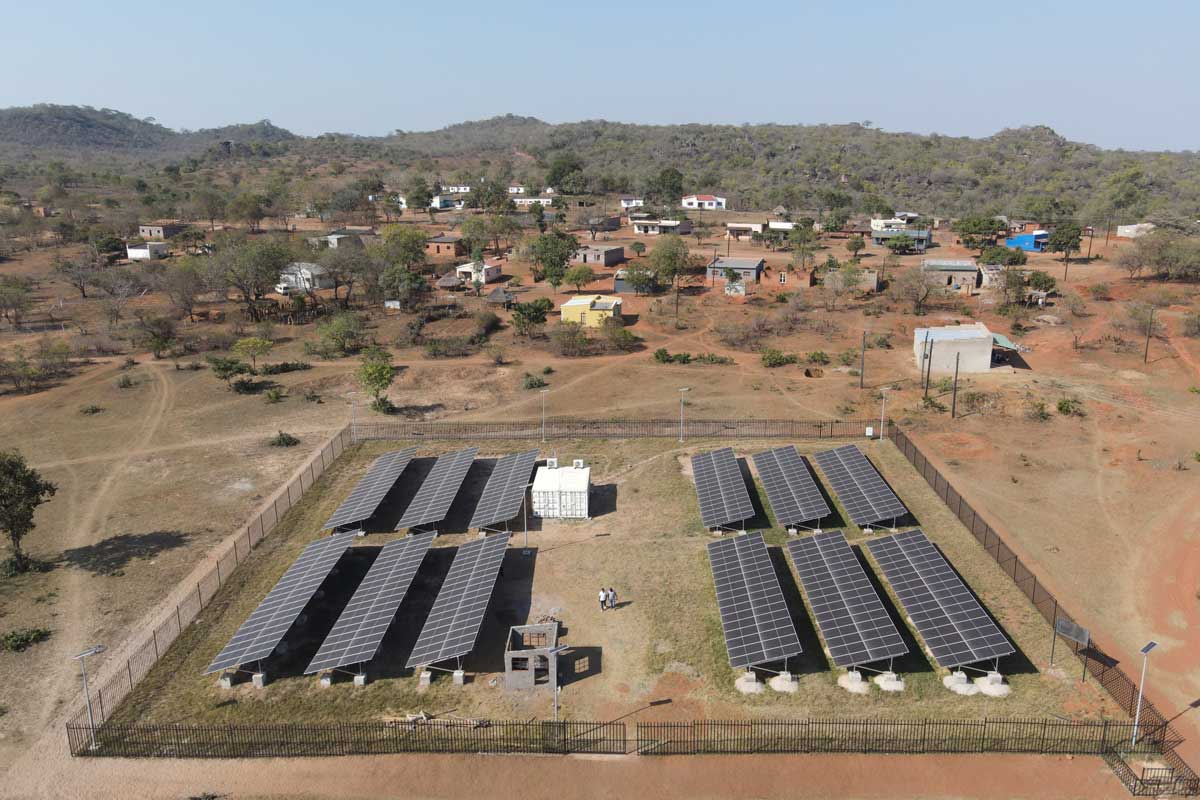In Zimbabwe, vaccines blunt impact of deadly cholera outbreak
Experts say vaccination has built resilience in former cholera epicentres. They also caution that the window of immunity must be used to improve sanitation infrastructure.
- 17 April 2025
- 6 min read
- by Farai Shawn Matiashe

Juliet Kutama vividly remembers when she suffered from cholera in 2023 at her home in Kuwadzana, a high-density suburb in the capital, Harare.
The 30-year-old had stools that resembled rice-water, and vomited several times a day.
“I started feeling weak. It was life threatening,” said the mother-of-two, her brow furrowed. “That was close.”
Kutama was taken to a local clinic where they had set up a cholera treatment centre. She was given intravenous fluids, oral rehydration solution and antibiotics while being monitored by nurses for several days until she was discharged.
When oral cholera vaccines (OCVs) came to Kuwadzana in February 2024, she was one of the first people to be vaccinated. “I never hesitated. I do not want what happened to me back then to repeat itself,” said Kutama. Whether she knew it or not, cholera had likely already primed Kutama’s immune system against the cholera bacterium. However, unlike other diseases, immunity against cholera – whether from natural infection or vaccination – fades in time. The dose of vaccine she received probably strengthened her defences.
Kutama is among the 2.1 million people who were vaccinated against cholera in Zimbabwe in early 2024, as the health system fought to contain a deadly outbreak.
Vaccines bring a vital window of time
Kuwadzana was hard-hit – one of the epicentres of the outbreak that began in 2023.
But now communities like Kuwadzana are showing proving their resilience, following a combination of interventions implemented by health authorities and their partners, including administering the vaccine and improving water, sanitation and hygiene (WASH) services.
In December last year, Zimbabwe confirmed a new cholera outbreak in Kariba, near the border with Zambia in the north. About 21 cases had been recorded, and one person had died.
By mid-January this year, the cholera outbreak had spread to other districts, including Bikita, Bindura, Chiredzi, Chipinge, Goromonzi, Mazowe and Shamva, infecting nearly 300 people.
City of Harare epidemiology and disease control officer Dr Michael Vere said the vaccines have helped to fortify the capital against resurgent outbreaks.
“I think cholera vaccination is an important intervention in terms of the control of the disease,” Vere told VaccinesWork. “The vaccine sort of gives you a window-period to work on WASH infrastructure.”

Building protection
He said the health system had confirmed cases in a squatter camp in Belvedere, Harare, in December 2024 but they were able to control it – largely because of the availability of OCVs.
“We isolated the cases and vaccinated all those people who were in that squatter camp during that time. By doing so, we were able to abort a potential outbreak,” Dr Vere said. “We also conducted the same exercise in Mufakose. We vaccinated all the people in the area and even at workplaces.”
Dr Kudzai Masunda, a technical director at the private voluntary health organisation JF Kapnek Zimbabwe, said in areas that have repetitively seen outbreaks, like parts of Harare, mounting resilience is attributable to past and reactive vaccination campaigns.
“In this outbreak, which has happened for some time, we got the first case of cholera in Glen View [only] this month, which is unlike during other outbreaks, in which Glen View and Budiriro would get cholera cases early. These areas would become the epicentres of the cholera outbreak.”
Norman Matara, a secretary general at the Zimbabwe Association of Doctors for Human Rights (ZADHR), said what is happening in communities like Budiriro is a form of resilience.
“After years of battling cholera outbreaks, these areas benefitted from targeted interventions which include drilling of boreholes, hygiene education, community-led sanitation and most importantly, the administration of cholera vaccines last year,” he tells VaccinesWork.
Zimbabwe brings cholera outbreak to an end
In August 2024, health authorities declared an end to the cholera outbreak that began in 2023 and had troubled the country for 18 months. More than 35,000 people were infected across 62 districts in all the country’s 10 provinces and over 700 were killed by cholera, according to the World Health Organization (WHO).
To control the outbreak, the Ministry of Health and its partners rolled out month-long vaccination campaigns targeting people older than one year in high-risk districts across seven provinces.
Each vaccination team comprised three community health workers and to reduce the further spread of the disease, they embarked on door-to-door campaigns.
An average of about 150 people a day were vaccinated by each team. They had a social mobiliser who helped with campaigns and sensitisation to reduce vaccine hesitancy.
The country’s worst recorded cholera epidemic spanned the years 2008 and 2009, resulting in nearly 100,000 confirmed cases and 4,288 deaths, according to WHO.
Cholera is an acute diarrhoeal infection that spreads when people consume food or water contaminated with the bacterium Vibrio cholerae.
In Kuwadzana and other typical hotspots, residents have struggled for access to safe water, basic sanitation and hygiene. WHO says these are essential to prevent cholera and other waterborne diseases.
In order to build out longer-term resilience against spikes of the waterborne infection, government and non-governmental organisations drilled boreholes in areas including Kuwadzana, and in water-poor rural areas.
Putting vaccines to work
The world’s stores of cholera vaccines is managed in a global stockpile, looked after by Gavi, the Vaccine Alliance. With outbreaks spiking around the world, the stockpile’s doses are in higher demand than ever: 35 million doses flew off its shelves to meet epidemic threats in various countries over the course of 2023, a massive figure.
Because vaccine supplies are consequently carefully managed, Dr Vere said that in Zimbabwe, the health system tends to conduct responsive vaccination campaigns and rarely preventative ones.
“If you get one dose, the duration is shorter, about six months. If you get two doses, the duration is longer, about two to three years. When vaccination campaigns are conducted, people get one dose because of shortages of vaccines,” he said.
“From the campaigns that we conducted recently, we managed to give one dose,” Dr Vere went on.
Masunda, who also serves as the secretary general at Zimbabwe College of Public Health Physicians, meanwhile, emphasised that OCVs should be regarded as a supportive tool in a strategy that should be long-sighted, and focused on addressing key disease drivers permanently.
Have you read?
Planning for elimination
The southern African nation adopted the Zimbabwe Multi-sectoral Cholera Elimination Plan to run from 2018 to 2028. Chaired by the Ministries of Health and Local Government, the plan’s secretariat is Zimbabwean billionaire businessman Strive Masiyiwa’s charity, Higherlife Foundation.
The document outlines the roadmap for Zimbabwe to eliminate cholera by 2028 by preventing the disease through the implementation of a variety of measures, such as long-term WASH improvement in affected areas, and containing outbreaks through early detection and rapid response to alerts.
Masunda cautioned that WASH needs to be addressed holistically for there to be no cholera cases. “Because we have now limited the spread of cholera through vaccination, we need to sort out the core problems that are making it unsafe. Making sure that the environment is safe. In a place where there is piped water, we ensure that the water is safe,” he said.
Matara says the lesson here is that when people act equitably and decisively, former epicentres can be turned into models of public health and resilience.
“However, the emergence of these new hotspots like Kariba and Glendale is a reminder that cholera remains a moving target, often chasing communities with the weakest infrastructure,” he said.
Kutama, meanwhile, said she feels comfortable and safe knowing that she is vaccinated against cholera.
“In addition to drinking safe water and practising safe hygiene, the cholera oral vaccine has boosted my confidence since last year,” she said.








